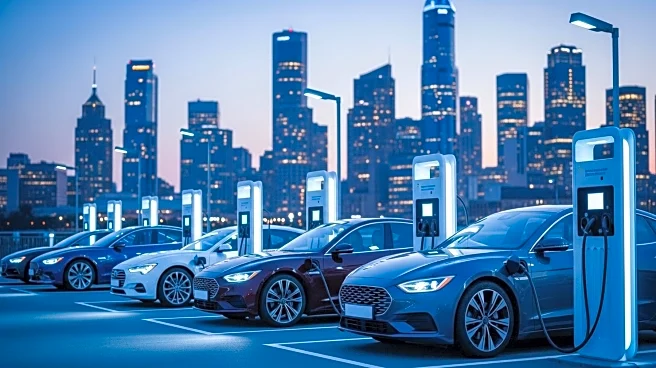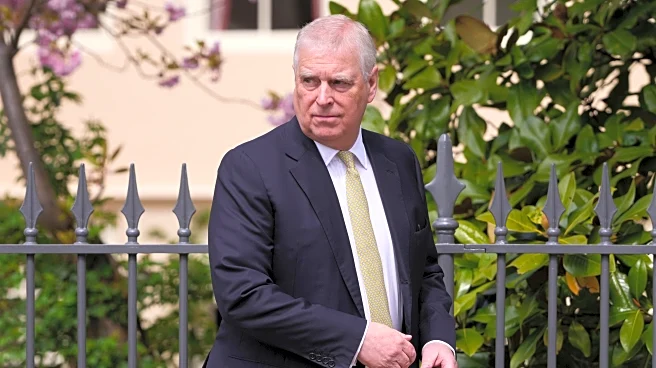What is the story about?
What's Happening?
The U.S. auto industry is recalibrating its approach to electric vehicles (EVs) following significant regulatory changes and market challenges. The Trump administration's rollback of federal incentives, including the $7,500 tax credit for EVs, has led to a predicted decline in EV sales. Despite this, automakers like Ford, General Motors, and Hyundai continue to invest heavily in EV production, albeit with a more cautious approach. The industry is also responding to the elimination of stringent emissions regulations that previously pushed for a 50% EV market share by 2030. This shift has prompted automakers to balance their focus between EVs and traditional gasoline-powered vehicles, with some companies exploring hybrid models as a strategic compromise.
Why It's Important?
The developments in the EV sector have significant implications for the U.S. automotive industry and its global competitiveness. The rollback of incentives and emissions regulations could slow the transition to electric vehicles, impacting the industry's ability to compete with markets like China and Europe, where stricter emissions standards are still in place. This shift may also affect the U.S. labor market, as EV production requires fewer labor hours compared to traditional vehicles. Additionally, the industry's strategic pivot could influence consumer choices and environmental outcomes, as the balance between EVs and gasoline vehicles will shape future emissions and energy consumption patterns.
What's Next?
Automakers are likely to continue investing in EV technology while adapting to market demands and regulatory landscapes. Companies like Ford are planning to introduce more affordable EV models, such as a $30,000 electric pickup by 2027, to stimulate demand. The ongoing legal battles over state-level emissions regulations could also influence future market dynamics, depending on the outcomes and potential changes in federal administration policies. As the industry navigates these challenges, the focus will be on aligning production capabilities with evolving consumer preferences and regulatory requirements.
Beyond the Headlines
The shift in EV strategies highlights broader economic and environmental considerations. The potential reduction in EV adoption could slow progress towards reducing carbon emissions, a key goal in combating climate change. Moreover, the industry's response to regulatory changes underscores the complex interplay between government policy, market forces, and technological innovation. As automakers adjust their strategies, the long-term trajectory of the U.S. automotive industry will depend on its ability to innovate and adapt to both domestic and international pressures.















